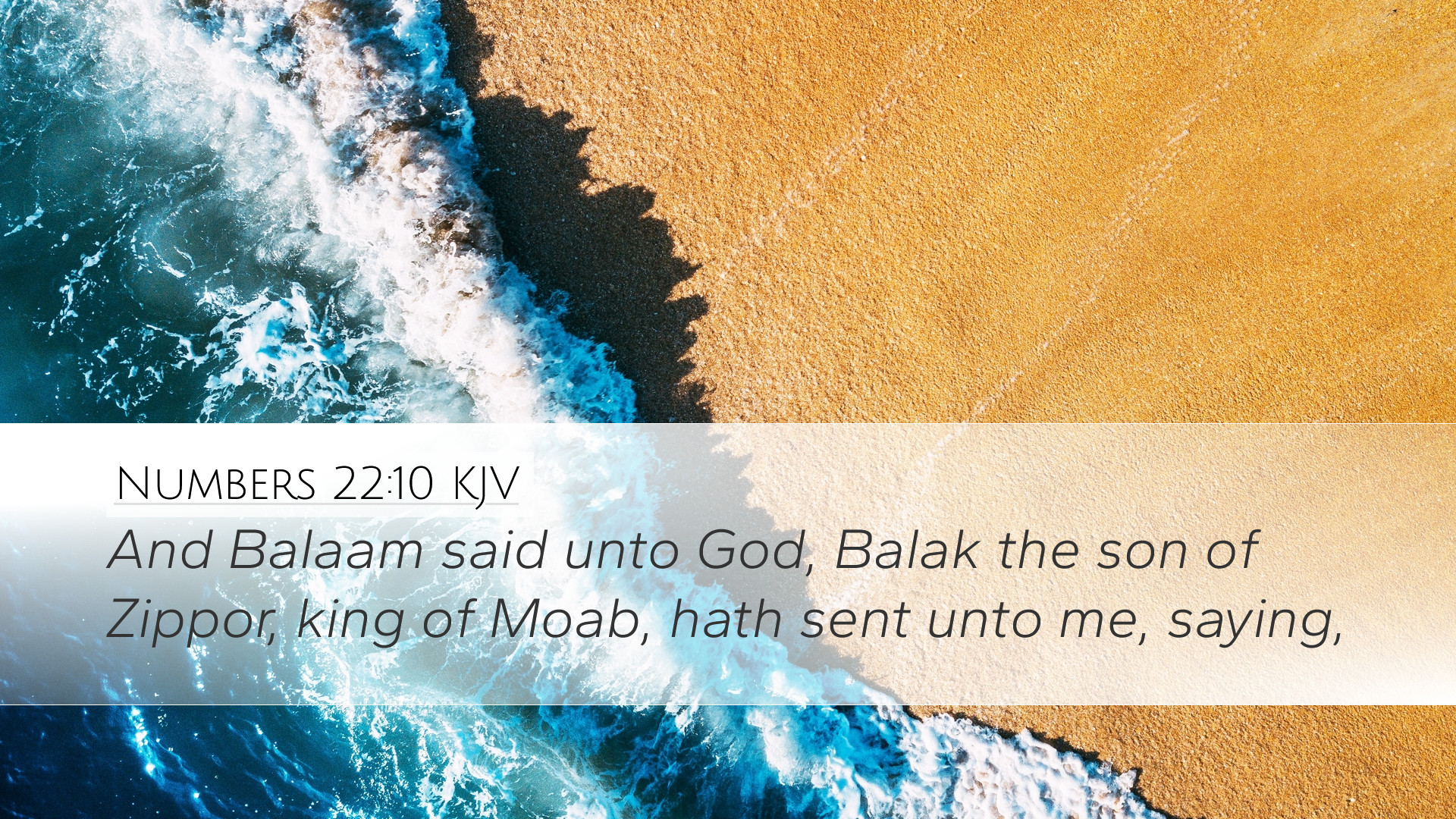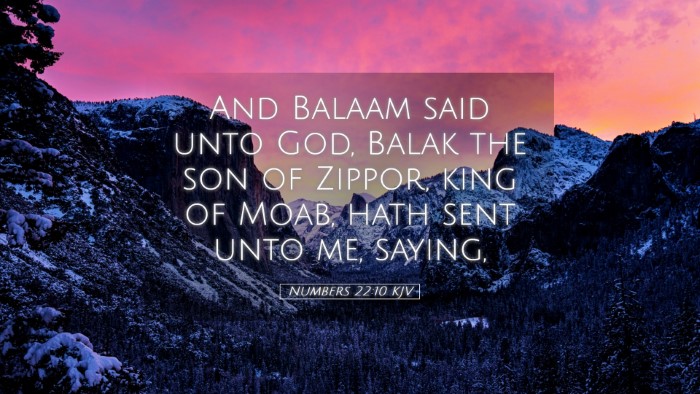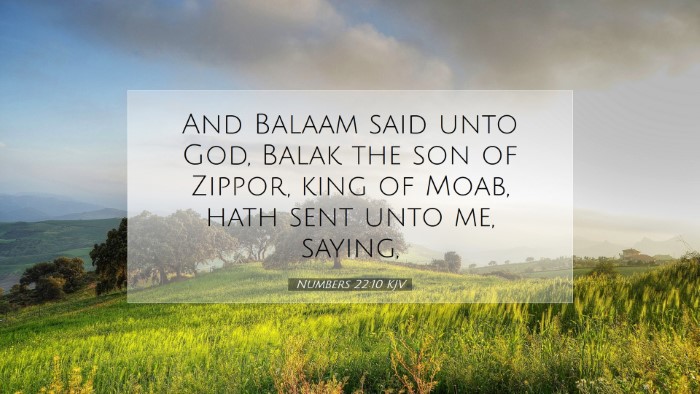Commentary on Numbers 22:10
Verse: “And Balaam said unto God, Balak the son of Zippor, king of Moab, hath sent unto me, saying,” (Numbers 22:10, KJV)
Contextual Background
Numbers 22:10 occurs within a significant narrative involving Balaam, a non-Israelite prophet, and Balak, the king of Moab. The Israelites were encamped in the plains of Moab, and Balak, fearing their military power and divine favor, sought to hire Balaam to curse them.
This passage sets the stage for understanding the complex interplay between divine will and human agency, prophecy and curse, and the larger theological themes presented throughout the Book of Numbers.
The Characters in View
Balaam: Balaam is often depicted in Scriptures as a figure who possesses the ability to communicate with God. Yet his motives are questioned, presenting a dichotomy between his prophetic capabilities and moral integrity.
Balak: He represents the worldly power that seeks manipulation of divine forces to achieve political ends. His actions showcase a reliance on external figures to combat perceived threats.
Theological Insights
This verse reveals several important theological themes:
- Divine Authority: Balaam's acknowledgment of God at the outset of this dialogue indicates his understanding that any prophetic utterance or action must align with divine will.
- Human Agency and Responsibility: The text exemplifies the responsibility of individuals in seeking God’s counsel rather than relying solely on external pressures or incentives.
- Conflict of Interests: Balaam stands at a crossroads between divine instruction and the lucrative temptations offered by Balak, illustrating the moral complexities inherent in prophetic ministry.
Commentary Analysis
Matthew Henry: Henry emphasizes Balaam’s initial response as an act of reverence towards God. It signifies Balaam's awareness of his accountability to God, framing the entire narrative as a theological inquiry into the nature of prophecy amidst human intrigue.
Albert Barnes: Barnes notes that Balaam’s inquiry suggests a deeper contemplation and willingness to discern God’s will. The verse illustrates Balaam's position as a bridge between the divine and the human realms, thus provoking an examination of how divine messages are mediated through human action.
Adam Clarke: Clarke comments on the socio-political implications of Balak’s request. He stresses that Balaam's role as a prophet is compromised by the bribery and allure of Balak’s gold, raising significant questions about the integrity of spiritual leaders and the potential corruption by worldly pursuits.
Practical Applications
For pastors and theologians, this verse serves as a timely reminder of the continual need for discernment in ministry. Here are some actionable insights:
- Prioritize God’s Voice: In decision-making, leaders should prioritize what God says over external opinions and pressures.
- Beware of Compromise: The story of Balaam warns against the temptations that may lead one to rationalize actions that stray from God’s commands.
- Seek Holiness in Leadership: Spiritual leaders must uphold moral integrity, serving as examples of faithfulness in a world that often prioritizes expediency over righteousness.
Conclusion
Numbers 22:10 serves as a pivotal moment in the narrative of Balaam and Balak, encapsulating the conflict between divine sovereignty and human ambition. It challenges readers to examine their own motivations and reliance on God’s guidance amid external pressures or desires. Through the insights from public domain commentaries, we glean the multifaceted layers of meaning within this verse, urging a deeper commitment to seeking God’s will above all.


